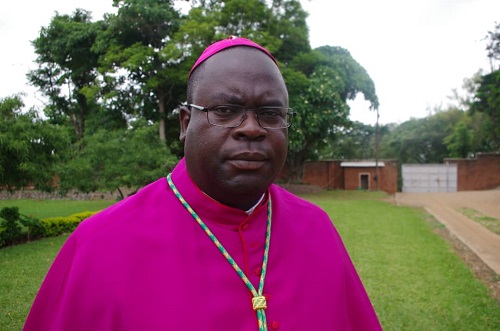MALAWI: Why Having a Permanent Deacon is “Not Just to Cover a Necessity,” An Explainer by Archbishop Tambala

Archbishop George Desmond Tambala
Sr. Jecinter Antoinette Okoth, FSSA
After the second Vatican Council, the position of the permanent deaconate has been existing in the Catholic Church to allow lay ordained ministers assist the bishops and the priests during liturgical actions, a step which the Archbishop of Malawi’s Lilongwe diocese clarifies that “must be done when there is a need.”
The Apostolic letter Sacrum Diaconatus Ordinem that was published in 1967, two years after the second Vatican Council established the general norms for restoring the permanent
diaconate in the Church.
Speaking to AMECEA online months after the Catholic Diocese of Karonga in Malawi ordained the first permanent deacon, Archbishop George Desmond Tambala reinforced that the diocese saw the need of having a permanent deacon and the Episcopal Conference of Malawi (ECM) allowed them.
“As a Conference, we do not see this step as out of order. We began inquiring from Rome about some canon norms on how the position of permanent deaconate can be applied in our contexts and this is how the diocese was able to make the move,” the bishop explained.
“The need is not just that a diocese lack priests, at the same time having a permanent deacon is not just to cover a necessity, no,” the Malawian Prelate cautioned and narrated,” After the Church reflected about different vocations, she feels that the vocation of permanent deacons and that of priesthood can be exercised together in a diocese when there is need.”
The Prelate who has been at the helm of Lilongwe Archdiocese since October 2021, after serving in Zomba Diocese for five years highlights that there is need of having both permanent deacons and priests serving in a parish together, “without necessarily opposing each other” saying, “They need to work in complementarity in a way that people know the difference between a permanent deacon and a priest.”
Expounding further on the significance of having permanent deacons in the Church, the member of the Order of Discalced Carmelites underscored that the “lay charism can be exercised through the position of permanent deaconate centered on the family apostolate.”
“Some dioceses would want to have permanent deacons in order to promote family life,” the Archbishop said and continued, “The diocese feels that after training these deacons will be the best people to animate the family life movement in the diocese since they have lived the life of the laity and being deacons gives them an added advantage.”
The Archbishop disclosed that ordination to permanent deaconate requires discernment of vocation, formation of the person and acceptance from community.
“The formation for deaconate takes about four years and this is the foundational theology which includes courses such as scripture, canon law, pastoral theology and moral theology among others,” Archbishop Tambala disclosed and explained further that e candidates do an integrated course adopted to the level of the candidate since most of them are advanced in age.
Even though this year in July the Catholic Diocese of Karonga ordained the first permanent deacon, the Archbishop explained, “the action taken by the Diocese does not mean that as a conference we will start implementing it randomly but what we have done is to open the door for our Dioceses that when there is need, they can do the implementation but within a certain norm since norms explains how this should be done.”


